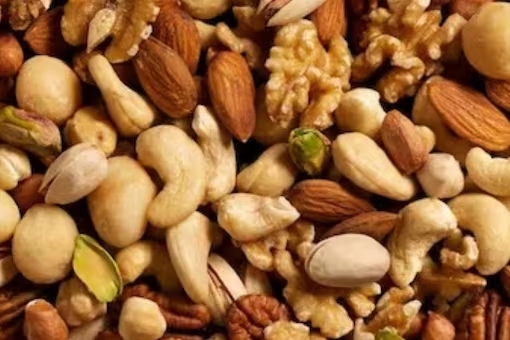Dry fruits have been a part of many of our diets. They are valued for their concentrated nutrients and long shelf life. While they offer a convenient and tasty way to boost your nutrition, it’s essential to consider both the pros and cons of incorporating dry fruits into your daily diet. Moderation and choosing natural, unsweetened varieties are key to reaping the nutritional rewards of dry fruits, while minimising potential risks. Let us explore the advantages and disadvantages of incorporating dry fruits into your daily routine.
Pros:
1. Nutrient Powerhouse
Dry fruits are rich in essential nutrients such as vitamins, minerals, and antioxidants. They provide a concentrated source of energy, making them an excellent snack option for those looking to increase their nutrient intake.
2. Heart Health
Dry fruits such as almonds and walnuts contain heart-healthy fats like omega-3 fatty acids. Their regular consumption has been linked to lower cholesterol levels and a reduced risk of heart disease.
3. Weight Management
Despite their calorie density, dry fruits can aid in weight management when consumed in moderation. They are satisfying, helping to curb hunger and prevent overeating of less healthy snacks.
4. Digestive Health
Dry fruits are a good source of dietary fibre, promoting a healthy digestive system. Fibre helps prevent constipation and promotes regular bowel movements.
5. Convenience
Dry fruits are convenient snacks that require no preparation and have a longer shelf life, compared to fresh fruits. They make an excellent on-the-go option for a quick energy boost.
Cons:
1. High Calorie Content
One of the drawbacks of dry fruits is their high-calorie content. Consuming them in excess may lead to an increase in overall calorie intake, potentially contributing to weight gain, if not accounted for in the overall diet.
2. Added Sugar and Preservatives
Some commercially available dried fruits may contain added sugar and preservatives to enhance flavour and prolong shelf life. It’s crucial to choose unsweetened varieties to avoid excess sugar consumption.
3. Tooth Decay
The sticky texture of some dried fruits can adhere to teeth, potentially leading to tooth decay. It’s essential to practise good oral hygiene, such as brushing and flossing, after consuming dried fruits.
4. Sulfites Sensitivity
Sulfites, commonly used as preservatives in dried fruits, can cause allergic reactions in some individuals. Those sensitive to sulfites should carefully read labels and choose sulfite-free options.
5. Not Suitable for Everyone
Some people may have difficulty digesting certain dry fruits, especially those with underlying health conditions. Individuals with diabetes, for example, need to be mindful of their carbohydrate intake from dried fruits.


